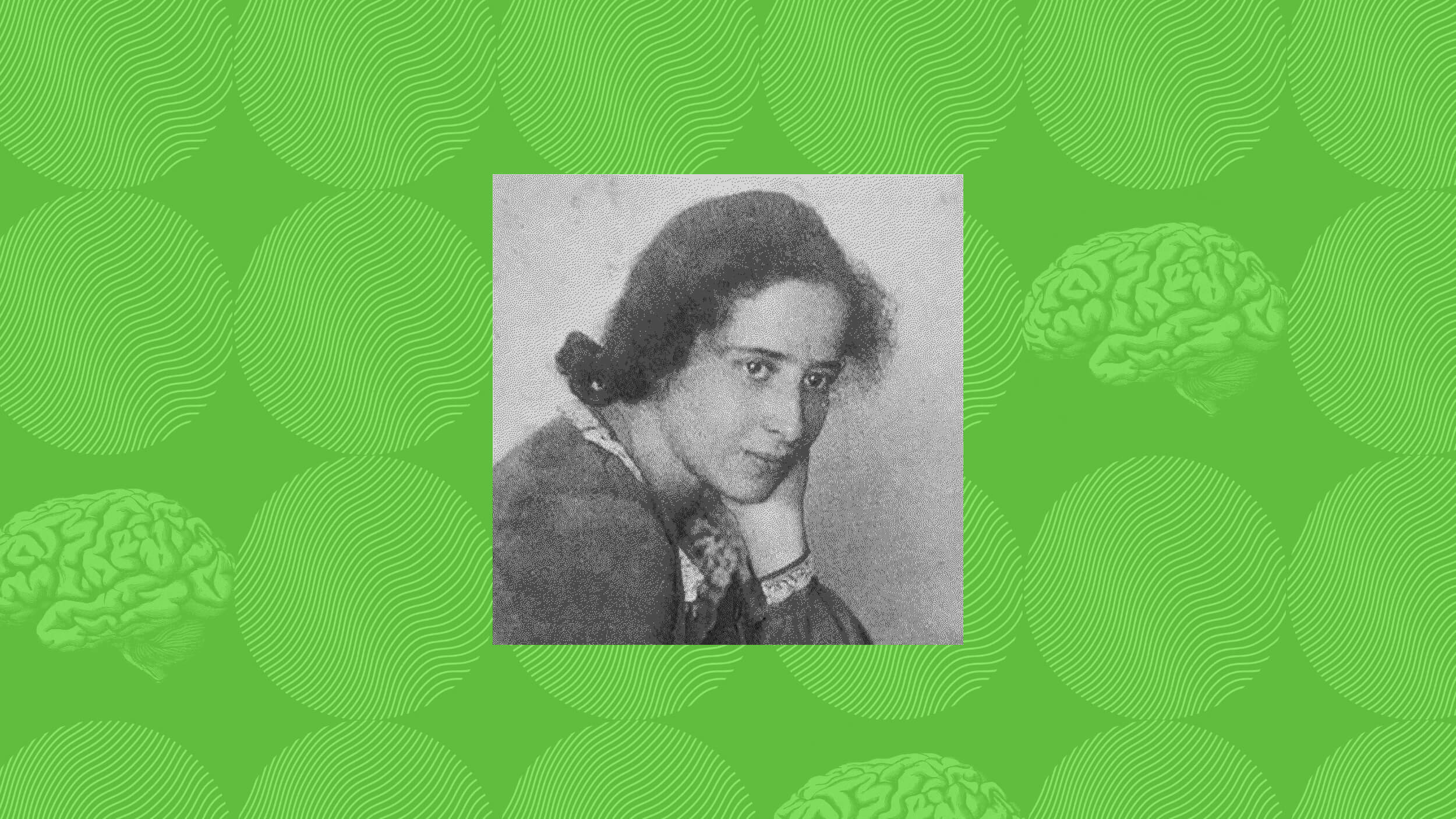Hannah Arendt on why some people are immune to fact-checking

(Photo: JACK GUEZ/AFP/Getty Images)
- People who don’t believe facts or news that disagree with their worldviews can be impossible to deal with, and boy there are a lot of them lately.
- Hannah Arendt tells us this isn’t all new; it happened before around 1936.
- It isn’t easy to convince a person who has given up on facts that they really should face reality again, but it can be done.
A strange phenomenon has infected global politics. Fact-checking, once seen as a dull but effective way to figure out what is true and what is false, is now an extremely contentious business that often utterly fails to convince people that their views are based on falsehoods.
Most of us who care about being accurate and seeking truth from facts are, justly, shocked by this. How can it be that entire political movements are based around falsehoods and eagerly supported by people who claim all attempts at fact-checking are “fake news”?
Luckily for us, there is a philosopher who saw this decades ago. Her name is Hannah Arendt, and she described all of it in a book about the rise of totalitarian regimes in the 20th century
The Origins of Totalitarianism, or: How to separate facts from reality in politics without really trying
In the third section of her magnum opus The Origins of Totalitarianism, Arendt examines the kind of propaganda used by the Soviets and the Nazis, her two examples of genuinely totalitarian regimes. Arendt argues that once people are “primed” for totalitarian movements by alienation and other factors, you can go ahead and spew an endless stream of lies and watch them eat it up. This is because of one of the key features of the people she calls the “masses”:
“The effectiveness of this kind of propaganda demonstrates one of the chief characteristics of modern masses. They do not believe in anything visible, in the reality of their own experience; they do not trust their eyes and ears but only their imaginations, which may be caught by anything that is at once universal and consistent with itself. What convinces masses are not facts, and not even invented facts, but only the consistency of the system of which they are presumably part.”
It’s not the facts of the matter that matter, it’s the consistency of the narrative the lies are part of that the “masses” care about. Frequently repeating the lies is of great use, as it demonstrates consistency over time. Once people have bought into the narrative, they will go to extreme lengths to ignore facts. Arendt notes that some of the most famous pieces of propaganda blatantly flew in the face of common sense:
“The chief disability of totalitarian propaganda is that it cannot fulfill this longing of the masses for a completely consistent, comprehensive, and predictable world without seriously conflicting with commons sense. If, for instance, all the “confessions” of political opponents in the Soviet Union are phrased in the same language and admit the same motives, the consistency-hungry masses will accept the fiction as supreme proof of their truthfulness; whereas common sense tells us that it is precisely their consistency which is out of this world and proves that they are a fabrication… They are predisposed to all ideologies because they explain facts are mere examples of laws and eliminate coincidences by inventing an all-embracing omnipotence which is supposed to be at the root of every accident. Totalitarian propaganda thrives on this escape from reality into fiction, from coincidence into consistency.”
This is interesting and all, but how do we deal with it? I have a cousin who thinks that millions of illegal votes were cast in 2016 and 2018.
That is a difficult problem. Arendt focuses on how these situations come into existence and spends less time on how to deal with it, though her insights could be used for dealing with the problem once it does exist.
As she argues that narratives are what members of “the masses” look for and not factual data, know that trying to reason with some people by pointing to facts and data won’t work; all you’ll hear is the phrase “fake news”. Instead, you might do better to focus on creating a narrative, ideally based on facts, that is just as consistent as the one founded on lies.
Author Ozan Varolsuggests that fact-checking can work if the data is presented as new. That is, by pretending that the the situation has changed and that new details are relevant, you’ve provided a face-saving out for a person to admit that their (absurd) previously held position was the right idea at the time but is now mistaken. While this seems like less fun than saying ‘I told you so’, it can get results.
Of course, you can always take the advice of former KGB agent Yuri Bezmenov who argued that sometimes you can’t reason with people and have to wait for the misinformation to cause them problems:
“A person who was demoralized is unable to assess true information. The facts tell nothing to him. Even if I shower him with information, with authentic proof, with documents, with pictures; even if I take him by force to the Soviet Union and show him [a] concentration camp, he will refuse to believe it, until he [receives] a kick in his fan-bottom. When a military boot crashes his balls then he will understand.”
Ignoring facts for the sake of comforting lies doesn’t work, as he puts it, when you’re getting kicked in the balls. He isn’t too far off of Ben Franklin’s slightly more eloquent proverb: “Experience keeps a dear school, but fools will learn in no other.”
If these two are correct,you might just have to wait for whoever you’re dealing with to get burned by their delusions before they’re willing to deal with reality.
All her life, Arendt wrote about totalitarianism, truth and lies, and how pencil-pushing schmucks could become war criminals in the right circumstances. She wasn’t overly pessimistic though; Professor Richard Bernstein tells us that she warned against giving into cynicism and for taking responsibility for our political lives. She knew that we always had a fighting chance to fix what was wrong with our societies.
Is fact-checking dead? Probably not, since the conditions Arendt said could create the disregard for facts came and went in Germany and Russia and will likely come and go here without as much trouble. However, her analysis is an essential read for anybody who can’t figure out why there are people who are seemingly immune to facts and reality when they make political choices.
Until we get back to a more fact-based situation, however, you might want to unfollow a few people on Facebook and have small talk topics ready to go at family functions for the sake of your sanity.





